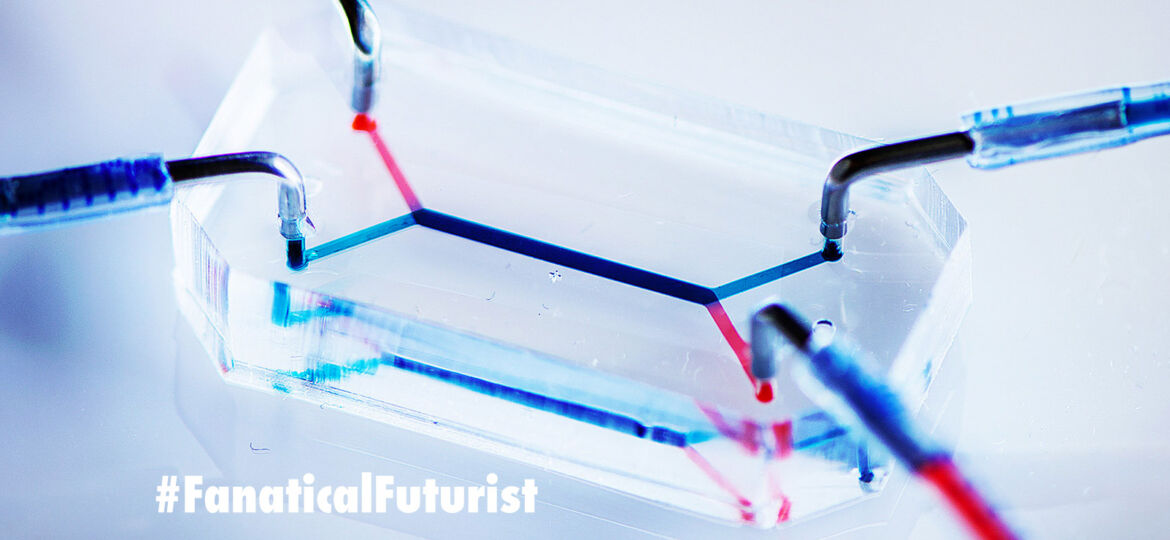
WHY THIS MATTERS IN BRIEF
Studying the effects that different drugs that pregnant women take during their pregnancies on their unborn children is complex, difficult and expensive, this technology could help save lives and reduce the likelihood of unwelcome birth defects.
Recently we’ve seen the creation of Brain in a jar, Heart in a jar, as well Heart and Human and on a chip technologies, all of which let drug companies test new drugs and treatments, without having to endanger volunteers, or use animal testing, cheaper and faster than ever before. Now, in another addition to the so called “Organ on a chip” platform scientists in the US have developed a Placenta on a chip to study how drugs are transported across the human placental barrier. Some maternally administered medications can enter the foetal bloodstream, but how the placenta determines which molecules can get through is still poorly understood, and that’s what this new breakthrough addresses.
The new Placenta on a chip was developed by researchers at the University of Pennsylvania and is a small block of silicone that houses two microfluidic channels separated by a porous membrane. The researchers grow human trophoblast cells on one side of the membrane and endothelial cells on the other.
The layers of those two cell types mimic the placental barrier, which determines what passes from the maternal to the foetal circulatory systems. By adding different molecules to the blood-like fluid flowing through the “maternal” microfluidic channel, the researchers can measure the rate at which they transfer to the “foetal” channel and how much they accumulate in the barrier itself.
The ability to test this process on human placentas is in high demand, researchers said, but understandably pregnant women are excluded from clinical drug trials, and animal models have severe limitations. Those limitations were tragically demonstrated in the case of Thalidomide, where a morning sickness drug able to transport across the human placental barrier led to tens of thousands of horrific birth defects and deaths.
To validate their Placenta on a chip as a testing platform, Dan Huh, assistant professor at University of Pennsylvania and his colleagues compared the transport of two drugs that have been studied via ex vivo placental perfusion, namely Heparin, an anticoagulant, and Glyburide, used in the treatment of gestational diabetes.
Heparin is understood to be too large a molecule to pass through the placental barrier, and the team’s Placenta on a chip also bore out that result.
Glyburide is considered safe to use during pregnancy, thanks to specialised efflux transporters expressed by the placental tissue that prevent maternally administered drug molecules from reaching the foetus, and again the Placenta on a chip was able to emulate this protective mechanism.
“We’re getting close. This study has given us confidence that the Placenta on a chip has tremendous potential as a screening platform to assess and predict drug transport in the human placenta,” Huh said.
Further research and validation studies will be necessary before the technology sufficiently replicates its in vivo counterpart for the purposes of clinical testing, researchers said, but nevertheless it’s a huge step forwards for a crucial area of research.
















